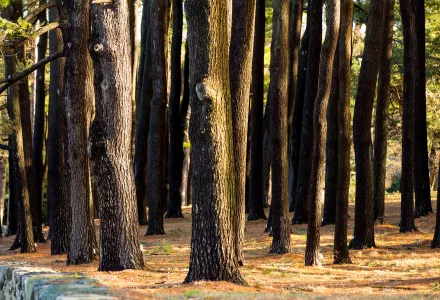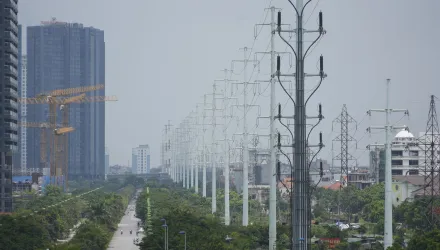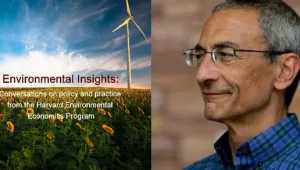
Members see pressing need to act now on climate change
Harvard University has created a Presidential Committee on Sustainability (PCS) to advise President Larry Bacow and the University's leadership on sustainability vision, goals, strategy, and partnerships. The panel will continue the practice of viewing campus as a testbed for initiatives and lead the work toward reaching overall goals, including being fossil-fuel-neutral by 2026 and fossil-fuel-free by 2050, while leveraging University strengths to catalyze solutions beyond campus walls. Various PCS subcommittees, which will include additional faculty and student members, will focus on Scope 3 emissions, defining fossil-fuel neutral, energy-reduction opportunities in Harvard's buildings, and other issues. The Gazette spoke with committee chairs Rebecca Henderson, the John and Natty McArthur University Professor; John Holdren, the Teresa and John Heinz Professor of Environmental Policy at Harvard Kennedy School; and Katie Lapp, executive vice president, about why it is so important to act now, the role of the PCS in developing collaborative and innovative projects; and how the campus community can get involved.
Q&A
Rebecca Henderson, John Holdren, and Katie Lapp
GAZETTE: Why is now such a critical time for leadership and action with regard to sustainability?
HENDERSON: The climate change problem is so significant, and it is, of course, not the only environmental problem that we are facing today. We are poisoning the oceans, exhausting the topsoil, polluting our water supplies, and destroying species at an unprecedented rate. If current rates of decline continue, the coral reefs will be largely gone by 2050.
So, why now? The longer we wait, the more costly and difficult it will be to try to arrest the effects of climate change. Climate change is an enormous threat to the health of our economy and to the health of our people. Many experts have argued that COVID-19 is in fact an example of the danger of unchecked environmental destruction; that one of the reasons we're seeing an increase in the leap of viruses from animals to people is because we are intruding on territories that previously were considered to be remote for humans. The simple increase in heat is already causing severe economic stress at the equatorial regions — it's too hot to work in New Delhi on many days of the year. We need to act now because the longer we leave it, the more expensive it will be for all of us. We also need to act now because it's still possible to slow climate change. We have a sense of what the technologies are that can enable us to transition to a greatly carbon-reduced economy, and we need to implement them now, in as widespread a manner as we can.
HOLDREN: We have a short time to turn around the global increases in emissions of heat-trapping gases that are driving this terrible degree of climate change and that are leading to the severe problems that Rebecca spoke about, and others such as the enormous increases in wildfires and torrential downpours and flooding, in the acceleration of sea level rise, and in the increased frequency and intensity of droughts....
Herpich, Nate."New Committee to Advise Bacow on Sustainability Goals." Harvard Gazette, April 20, 2020.
The full text of this publication is available via Harvard Gazette.





